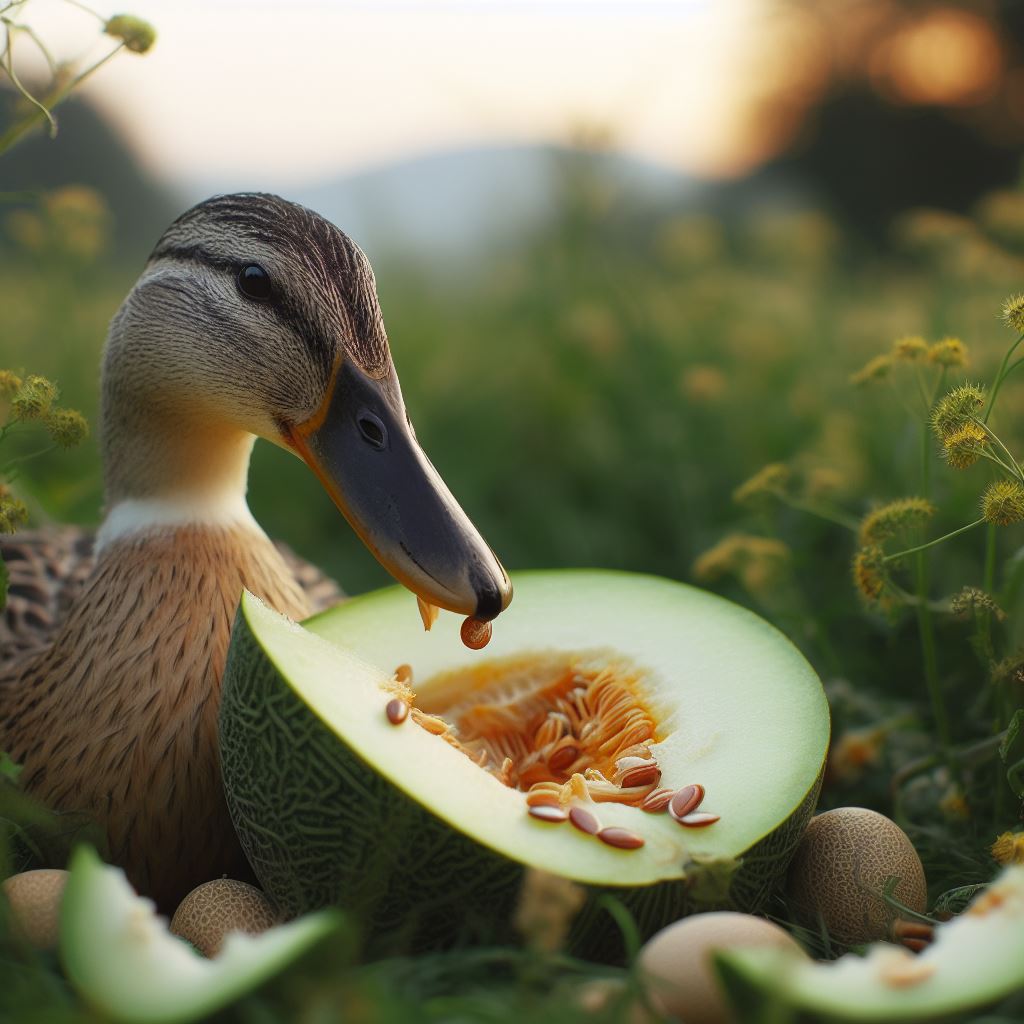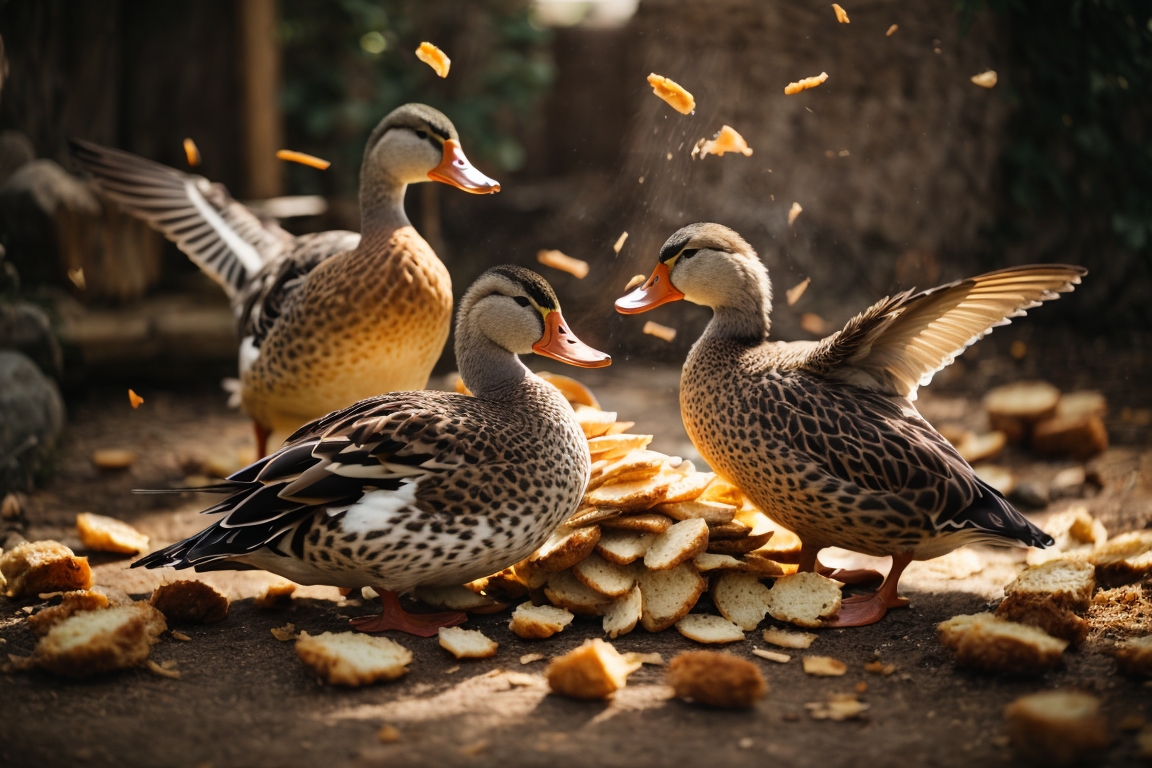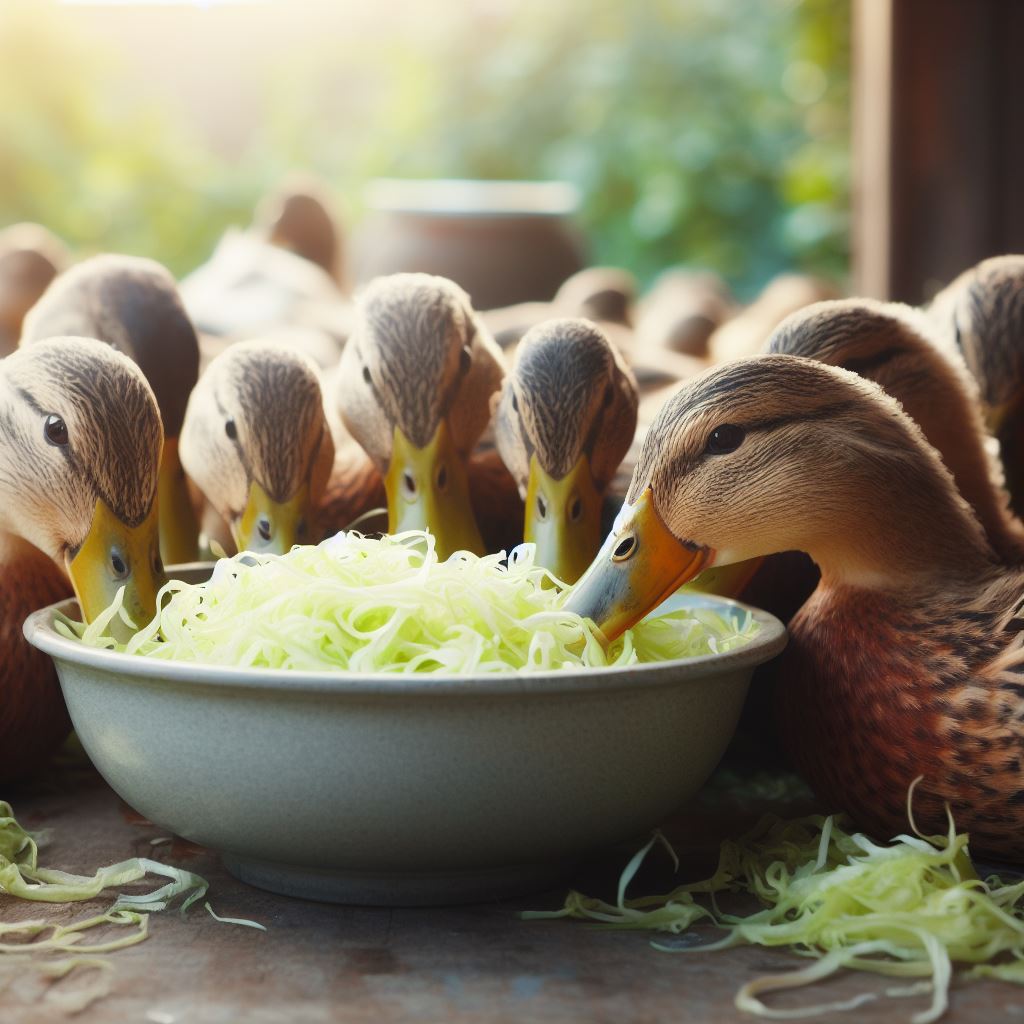Can Ducks Eat Melon Seeds? A Comprehensive Guide

Table of content:
Melon seeds are a common question when it comes to feeding ducks. As pet owners and wildlife enthusiasts, it’s important we understand what is safe and nutritious for ducks to eat. This complete guide covers everything you need to know about feeding ducks melon seeds.
Key Takeaways:
- Melon seeds like watermelon and cantaloupe are generally safe for ducks to eat in small quantities as an occasional treat.
- Avoid feeding ducks large amounts of melon seeds or any seeds from citrus fruits, which can cause digestive issues.
- Seeds from fruits like pumpkin, peas, corn, and oats are excellent sources of protein and nutrients for ducks.
- When in doubt, offer ducks a variety of chopped fruits and vegetables like lettuce, berries, pears, and peaches.
 Are Melon Seeds Safe for Ducks?
Are Melon Seeds Safe for Ducks?
The short answer is yes, melon seeds are typically fine for ducks to eat. Seeds from melons like watermelon and cantaloupe provide ducks with protein and excess fat they need in their diet.
Ducks will often eat small seeds while foraging or grazing for food. Their digestive systems are equipped to handle most small seeds. However, duck owners should still exercise some caution when offering seeds.
Some tips on feeding ducks melon seeds:
- Only feed small amounts as an occasional treat. Large quantities of any seeds can cause digestive upset and diarrhea.
- Avoid citrus seeds from oranges, lemons, limes, etc. The oils may be difficult for ducks to digest.
- Always provide fresh drinking water when feeding seeds or any new foods.
For duck owners, melon seeds can be an easy addition to a nutritionally balanced diet when fed properly. For wild ducks, small seeds from melons and other fruits are natural components of their diverse diet of plants, grains, insects and more.
What Kinds of Seeds Can Ducks Eat?
Ducks can safely eat a variety of small seeds in moderation. Some examples of seeds ducks can eat include:
Fruit Seeds:
- Watermelon
- Cantaloupe
- Pumpkin
- Berries like strawberries, raspberries and blackberries
- Pomegranate
Vegetable Seeds:
- Peas
- Corn
- Tomatoes
- Cucumbers
- Zucchini
Grain Seeds:
- Oats
- Wheat
- Barley
- Millet
Fruit and vegetable seeds provide protein, carbohydrates, and trace minerals ducks need. Grain seeds offer nutrition as well as fiber for healthy digestion.
When offering any new seeds, introduce them slowly and watch for signs of diarrhea or upset stomach. For domestic ducks, no more than 15% of their diet should come from seeds or nuts high in fat.
Can Ducks Eat All Kinds of Fruit Seeds?
While most small fruit seeds are fine for ducks, some should be avoided or limited.
Fruit seeds ducks should not eat:
- Citrus fruits – Oranges, lemons, limes, grapefruit. The oils may cause digestion issues.
- Avocados – The large pit and skin contain persin, which is toxic to birds.
Fruit seeds to limit for ducks:
- Cherries, peaches, plums – Contain a cyanide compound that can be toxic in excess.
- Apples – Seeds contain trace amounts of cyanide.
As a general rule, it is safest to remove large pits, skins and stems before feeding ducks any fruits. Some exceptions with edible skins include berries, melons, bananas, and kiwis.
When in doubt, consult your veterinarian about the safety of any new fruit for pet ducks. Wild ducks will naturally avoid fruits and seeds not suited to their diet.
 Health Benefits of Fruit and Vegetable Seeds
Health Benefits of Fruit and Vegetable Seeds
When fed properly, fruit and veggie seeds provide significant nutritional value for ducks. Benefits include:
- Protein – Seeds contain more protein per gram than fruits and veggies. Helps develop strong muscles and feathers.
- Healthy fats – Fruit and veggie seeds provide omega-3 fatty acids for skin and feather health.
- Fiber – Aids digestion and nutrient absorption. Prevent constipation.
- Vitamins and minerals – Seeds supply vitamin E, B vitamins, iron, magnesium, zinc, and antioxidants. Support immune function.
In the wild, seeds give ducks sustained energy from complex carbs and protein. The nutritious oils help waterproof their feathers. Sprinkling a seed mix into their feed mimics the varied diet wild ducks enjoy.
Best Practices for Feeding Ducks Seeds
Follow these tips to safely provide fruit and vegetable seeds as a supplement for ducks:
- Introduce new seeds slowly and watch for signs of gastrointestinal upset.
- Chop or mash larger seeds like pumpkin or squash. Whole melon seeds are fine.
- Limit portion to no more than 15% of daily food intake.
- Provide seeds as part of a varied diet along with poultry feed, insects, greens, vegetables and fruits.
- Always offer fresh, clean water when feeding seeds or new foods.
- Remove rinds, peelings, pits and stems before feeding ducks any fruit pieces.
- Avoid overfeeding. Obesity can cause serious health problems in domestic ducks.
With proper precautions, seeds can be a nutritious addition to a well-balanced diet for ducks. Be sure to consult your veterinarian if ever unsure about the safety of any food for your duck.
Are Grape and Tomato Seeds Safe for Ducks?
Grapes and tomatoes are common fruits with small edible seeds ducks can eat. However, portions should be limited, and some parts should be avoided.
Grapes:
- Seeds – Small and soft, grape seeds are fine for ducks to ingest. Easy to digest.
- Skins – Grape skins contain resveratrol, which can cause toxicity in large amounts. Remove skins before feeding grapes.
- Portion size – No more than 15 grapes cut in half per day for a full-grown duck. Too many may cause diarrhea.
Tomatoes:
- Seeds – Perfectly safe and provide nutrition. Ducks can eat tomatoes seeds and all.
- Stems – Contain small amounts of solanine, so remove stems before feeding tomatoes.
- Portion size – Feed no more than one large tomato per day for a full-grown duck. Too much may cause loose stool.
Grapes and tomatoes should be an occasional treat. Be sure to introduce new foods slowly and watch for any reaction. Consult your vet if ever unsure about feeding ducks a new fruit or vegetable.
FAQs About Feeding Ducks Melon and Other Fruit Seeds
Can ducks have any seeds or just certain ones?
Most small edible seeds from fruits, veggies, grains and beans are safe for ducks in moderation. Avoid large pits and extremely hard seeds that could cause choking or crop impaction.
Is it okay to feed ducks seeds from fruit?
Yes, most small soft seeds from melons, pumpkins, tomatoes, cucumbers, grapes and berries are perfectly fine for ducks to eat. Avoid citrus seeds and limit apple seeds.
What fruits have seeds that are safe for ducks to eat?
Common fruits with safe seeds include melons, pumpkins, tomatoes, cucumbers, peppers, grapes, berries, stone fruits, and tropical fruits like kiwi, mangos and papaya. Always remove peelings, stems and pits first.
Should ducks eat large amounts of seeds?
No. While small portions of seeds are beneficial, too many can lead to obesity and other health issues. No more than 15% of a duck’s diet should come from seeds high in fat.
Can wild ducks eat citrus and melon seeds?
Wild ducks have diverse foraging diets and can safely eat small amounts of most seeds. However, they tend to avoid citrus fruits and seeds, which are difficult for birds to digest.
Conclusion
In moderation, most seeds from fruits and vegetables are healthy supplemental foods for ducks. Melon seeds can provide protein, vitamins and minerals as part of a balanced diet.
Ducks can safely eat small amounts of seeds from watermelons, cantaloupe, pumpkin, and most berries. For both wild and domestic ducks, melon seeds and other fruit seeds should be limited portions fed occasionally.
Welcome. I’m Adreena Shanum, the proud owner of this website, and I am incredibly passionate about animals, especially poultry. I founded adreenapets.com as a labor of love, stemming from my desire to share my knowledge and experiences with poultry enthusiasts worldwide.




